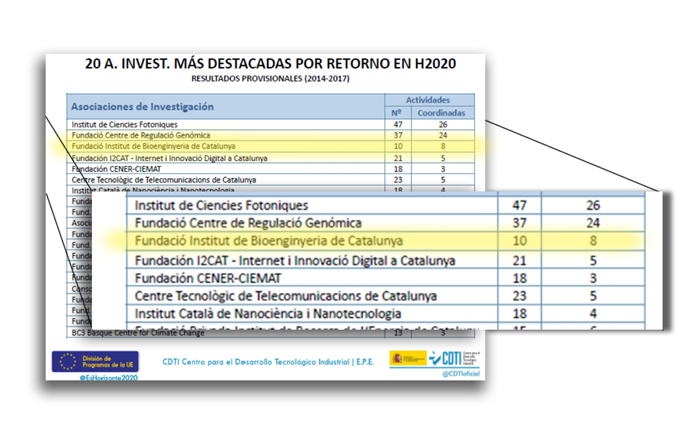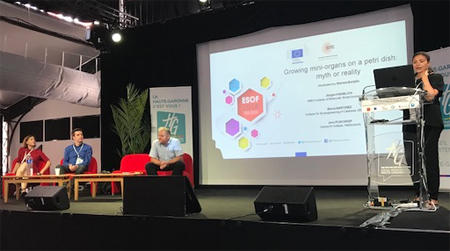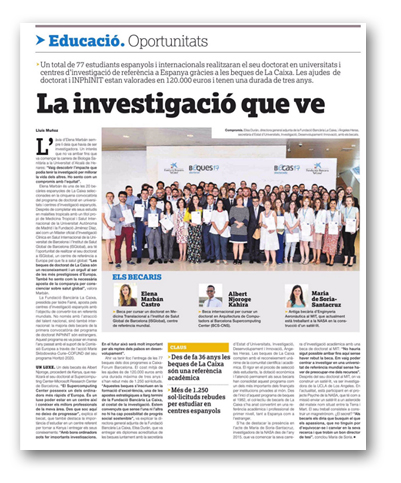Laboratory Assistant in Biosensing for Bioengineering (Ref. LA-JR)
 Application Deadline: 04/04/2019
Application Deadline: 04/04/2019
Ref: LA-JR
The Biosensors for bioengineering group at the Institute for Bioengineering of Catalonia (IBEC) lead by Dr. Javier Ramon is looking for a Laboratory Assistant to participate in the development and implementation of sensing platforms (optical and electrochemical) to detect relevant cytokines in tissue engineering field. This position will be funded by a national project from the Ministerio de Ciencia, Innovación y Universidades.


 IBEC is listed as an ‘outstanding’ Spanish research centre for Horizon 2020 funding in a recent report published by the Centro para el Desarrollo Tecnológico Industrial (CDTI).
IBEC is listed as an ‘outstanding’ Spanish research centre for Horizon 2020 funding in a recent report published by the Centro para el Desarrollo Tecnológico Industrial (CDTI). 


 This week IBEC group leader Elena Martinez is in Toulouse for the EuroScience Open Forum (ESOF), the largest interdisciplinary science meeting in Europe, where she is taking part as a speaker.
This week IBEC group leader Elena Martinez is in Toulouse for the EuroScience Open Forum (ESOF), the largest interdisciplinary science meeting in Europe, where she is taking part as a speaker.
 Last week there was a lot of press coverage of the La Caixa PhD fellowships ceremony, which took place at the Caixaforum on 3rd July.
Last week there was a lot of press coverage of the La Caixa PhD fellowships ceremony, which took place at the Caixaforum on 3rd July.